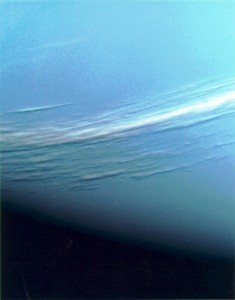Estimated reading time: 3 minute(s)
 One topic of study currently in the Campbell home is astronomy. Mom and most of the children are part of a home schoolers co-op that go through science curriculum together, and this year’s topic for the middle kids is the science of space.
One topic of study currently in the Campbell home is astronomy. Mom and most of the children are part of a home schoolers co-op that go through science curriculum together, and this year’s topic for the middle kids is the science of space.
(My favorite! Our kids had a leg up on everyone else as we have always watched space-related documentaries, and we subscribe to several NASA video podcast feeds as well. Yes, we are that awesome!)
This past week, one of the girls said something to me about learning that it rained diamonds on Neptune. My first response was a smile and a chuckle, and a silly, “Noooooo, it does not!” Little girls who are four, six, and eight can have a different way of hearing and passing along information, right? But she insisted that it was true, and her older siblings and Mom confirmed it.
What???
I had to look this one up, so I did.
Here’s an excerpt from the article:
If experiments at the University of California, Berkeley, are any indication, future explorers of our solar system may well find diamonds hailing down through the atmospheres of Neptune and Uranus.
These planets contain a high proportion of methane, which UC Berkeley researchers have now shown can turn into diamond at the high temperatures and pressures found inside these planets.“Once these diamonds form, they fall like raindrops or hailstones toward the center of the planet,” said Laura Robin Benedetti, a graduate student in physics at UC Berkeley.
Whoa! Neat! Are you kidding me?!
Space is just incredibly amazing. Our planet alone is amazing… then that God would create such diversity across the billions of light years of space. Holy moly.
BUT, as cool as that theory from last century is … (and I suppose it’s still possible, as most of what we know about those planets still falls under the “theory” category)
“Some scientists have claimed that diamonds may form inside both Uranus and Neptune, but I do not believe that is true since the methane is confined to the surface where the pressures are much less,” says Monash University astrophysicist Dr. Andrew Prentice. “I think that is wishful thinking. In any event, the ‘falling diamonds’ would hardly have any influence whatever on the internal heat budget of Neptune or Uranus.”
So says Mike Bessell, a professor at the Australian National University’s Research School of Astronomy and Astrophysics, via this article.
Party pooper.
I thought a theory from 1999 might be a tad outdated. Ah well. It was fun while it lasted.
And I’m still holding out a little hope that this is actually happening!
There are a lot of wild theories out there! I read recently that we think that the best way to divert “Killer Asteroids” from smashing into our planet might be to spray paint them.
Hmmm…
I think the diamond rain is cooler.
For further reading:
- Diamonds In The Sky – PBS/NOVA
- Neptune Rising – Discover Magazine
